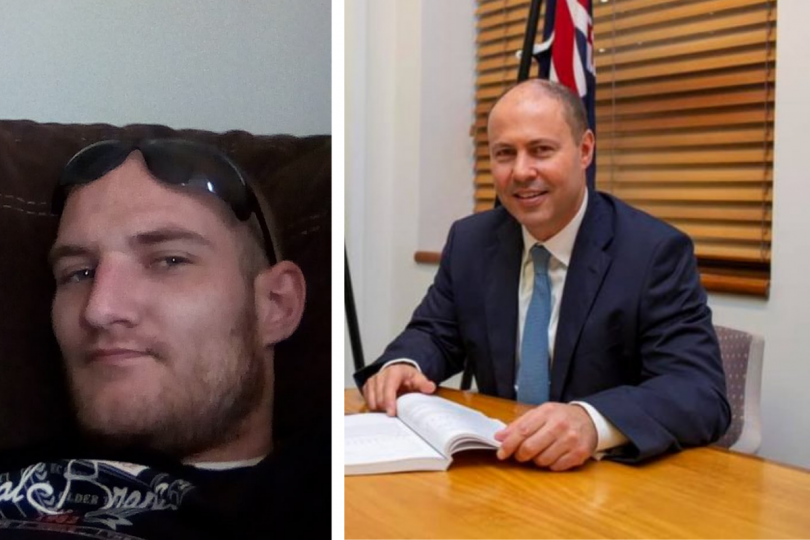
Ian Stewart Mellowship (left) is accused of threatening to “flog” Josh Frydenberg. Photos: Facebook.
A West Australian man accused of travelling across the country “specifically to flog the Treasurer” and refusing to leave “until the job is done” has been denied bail for the second time.
Wearing thongs, Ian Stewart Mellowship appeared in the ACT Magistrates Court on Tuesday (31 August), where his original charges were replaced with ones of trespass and threatening to cause harm.
These allege he trespassed at the Treasury building on 7 July and told two different people he would harm Treasurer Josh Frydenberg in May and July.
“In short, that you told one person you were going to harm a public official because of his job,” Chief Magistrate Lorraine Walker said to him after reading out one of his charges.
In the Magistrates Court on Friday (3 September), Commonwealth prosecutor Cecilia Pascoe alleged Mr Mellowship left his home state of WA, where he had a young child, and flew to Canberra “specifically to flog the Treasurer”.
She said Mr Mellowship allegedly returned to Parliament House after being told to leave and accessed the Treasury building despite not having the authority to do so.
Ms Pascoe claimed he said, “he won’t be leaving Canberra until the job is done, the job being assaulting the Treasurer”.
He applied to be released on bail for the second time, but the court heard one of the homes he said he could live at belonged to a friend with an extensive criminal history, while he could not remember the address of the other place.
Mr Mellowship’s duty lawyer Ms Cobden said her client had already spent a significant period of time in custody, about five weeks, and the alleged offending came at a time when he was experiencing concerns and delusions relating to Mr Frydenberg.
She said he had been taking anti-psychotic medications for the last month and a psychiatrist from the Alexander Maconochie Centre found his mental health had improved.
“It’s clearly evident that at the time of the alleged offences, Mr Mellowship was unwell,” she said.
Ms Cobden argued that due to Canberra’s COVID-19 lockdown, the ability for people to go to public places like Parliament House was now very limited.
She said her client did not have any particular ability to access Mr Frydenberg, and the latter had the benefit of sophisticated security systems.
Bail conditions could include that he not go near Parliament House, the Treasury or Mr Frydenberg, she said.
Magistrate James Lawton ultimately refused bail, noting the uncertainty of where Mr Mellowship would live.
He said the matter would return to court on 13 September for a fitness to plead inquiry.





















